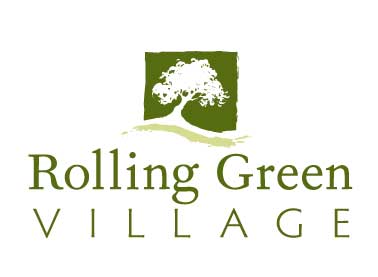
According to Nursing Home Compare, the official U.S. government site for Medicare, a nursing home is a place for people who can’t be cared for at home and need 24-hour nursing care. It could be for short-term rehabilitation after a stay in hospital or for chronic conditions or disabilities requiring long-term nursing care.
Assisted living, on the other hand, is for seniors who don’t need nursing care but who do need help with activities of daily living (ADLs). ADLs include assistance with bathing, dressing, toileting, getting out of bed, and eating.
The criteria for an assisted living community versus a nursing home really depends on what your needs are now, what they may be in the future, the services and amenities offered by the community, and what your budget will allow.

Care at Assisted Living Versus Nursing Home
There are significant differences in the types of care offered at assisted living and nursing homes. Take a look at what your loved one can expect from each:
Assisted Living
In addition to a personal care plan for help with activities of daily living, many assisted living communities in Greenville, SC, provide the following services:
- Healthcare monitoring
- Housekeeping and laundry
- Medication management
- Recreational and social activities
- 24/7 security
- Scheduled transportation
- Two or more meals per day
Similar to independent living communities, assisted living communities provide the same types of social and lifestyle benefits.
Nursing Homes
In addition to both basic and skilled nursing care, many nursing homes provide the following services:
- Oversight by a physician
- Help with activities of daily living
- Recreational and social activities
- Pastoral care
- Three meals per day, plus snacks between meals
- Housekeeping and laundry
- 24/7 security
- Physical, occupational, and speech therapies
Dementia Care in an Assisted Living Community Versus a Nursing Home
If a family member has Alzheimer’s or another form of dementia, look for a senior living community that has a dedicated staff specializing in caring for people with memory loss.
Assisted living memory care is designed for early-stage dementia and offers a safe, familiar and supportive environment that focuses on each person’s strengths and capabilities.
Nursing home dementia care is generally for individuals in the later stages of the disease, when symptoms are more debilitating.
Life Plan Communities, also called Continuing Care Retirement Communities (CCRCs), offer multiple levels of care, including memory care. Rolling Green Village, for example, offers a dedicated memory care neighborhood that engages each resident in ways that allow them to thrive.
When considering a senior living community for your family member, a Life Plan Community like Rolling Green Village can provide the care they need, both now and in the future, at predictable costs—without ever having to move to another community.
Costs of Assisted Living Versus Nursing Homes
Expect to pay more for nursing care than assisted living as it’s a higher level of care. Costs vary from one community to the next based on size, services and amenities provided.
Assisted Living:
- Generally lower costs than nursing homes
- Monthly fees cover room, board, and assistance with activities of daily living
- May have additional charges for specialized care and amenities
Nursing Homes:
- Typically higher costs due to skilled medical care
- Monthly fees cover room, board, skilled nursing care, and assistance with activities of daily living
- Additional charges for specialized services may apply
Factors Affecting Costs
- Location: This varies based on the local cost of living.
- Level of Care: Nursing homes, with higher medical care, are generally more expensive.
- Amenities: Facilities with more amenities may have higher fees.
- Room Type: Private rooms may cost more than shared accommodations.
- Specialized Services: Charges may apply for additional medical treatments or therapies.
When considering the cost of an assisted living community versus a nursing home, it’s best to discuss your options with the community. There may be nursing services or an in-home agency that can bridge the gap between assisted living and skilled nursing care.
Paying for Care
Medicare does not cover assisted living, so most people pay for it out of pocket or with help from limited coverage provided by long-term care insurance. Nursing home care can be paid for privately, with long-term care insurance, Veterans Aid & Attendance Benefits, Medicare or Medicaid.
Medicare generally doesn’t cover long-term stays in a nursing home, and it only pays for medically necessary care— it doesn’t pay for room and board. Medicare covers certain daily skilled care services on a short-term basis (up to 100 days in a benefit period).
In addition, Medicare requires a three-night stay in the hospital prior to admission to a skilled nursing facility. For more information on Medicare coverage, visit Medicare.gov or call 1-800-633-4227.

How To Start Your Search
Find Assisted Living Communities in Your Area
Decide which type of setting your family member would prefer. Bigger communities aren’t always better, and a smaller community may not offer all the amenities that a larger community provides. In addition, consider future needs and whether the community can accommodate them.
- Ask people you trust for recommendations—friends, family members, or a physician.
- Contact the South Carolina Department of Health and Environmental Control for a list of licensed facilities. Assisted living communities are regulated by the state.
- Visit Eldercare Locator or call at 1-800-677-1116.
- Check a community’s online reviews, although don’t rely solely on these reviews.
Once you have a list of assisted living communities to visit, call them to schedule your personal visit. Be sure to have questions to ask and review any materials after your visit with family members. To help you prepare for your visit, download a checklist of what to ask from the AARP website.
Find Nursing Homes in Your Area
The Centers for Medicare & Medicaid Services rates more than 15,000 nursing homes on a scale of 1 to 5 stars (the more stars, the better). Use their online tool to find and compare nursing homes in the Greenville area. You can use this checklist as a guide on what questions to ask when you visit a nursing home. You can also ask your social worker at the hospital to help you find a nursing home that meets your needs and help with your transfer when you’re ready to be discharged.
Explore Your Options at Rolling Green Village
There are different levels of care offered at Rolling Green Village to ensure that all residents can get the care they need. For more information or to discuss your care options at Rolling Green Village, use our contact form or call 864-558-9301.




